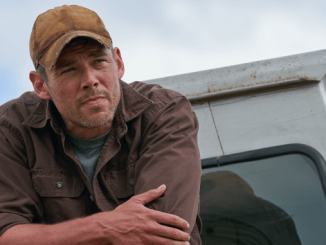Police dramas hit a wall when the western hemisphere rallied behind George Floyd’s family, seeking justice for his murder. The once-reliable genre took a hit. Writers and producers scrambled to compensate for the ever-growing bad wrap cops were getting.
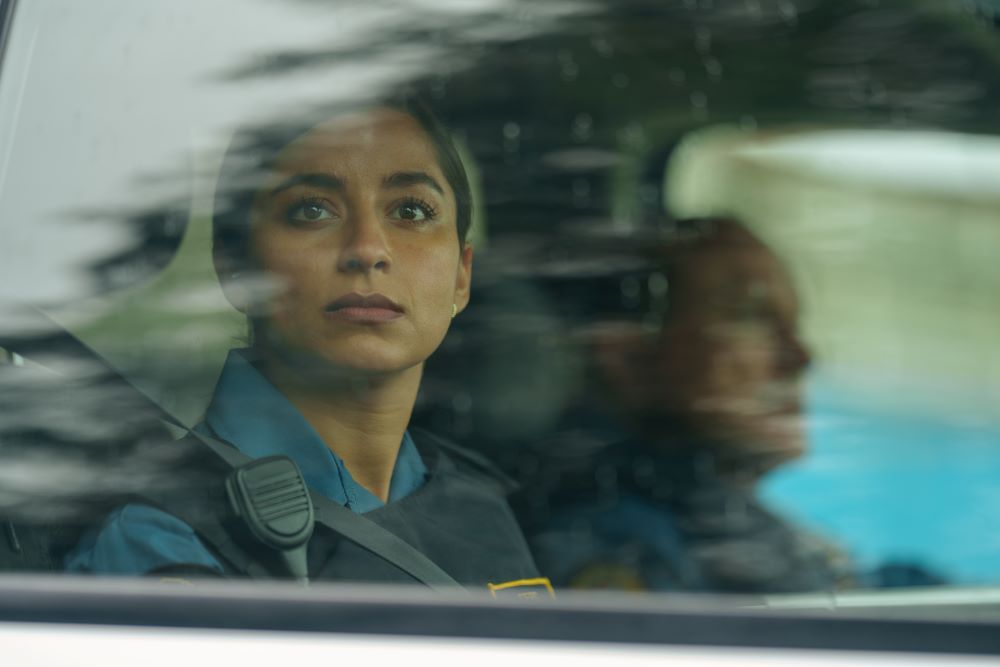
Despite this injustice being reported as an “American” issue, Canada has some trigger-happy officers of its own. In particular, we see this with the RCMP out west seeping into First Nations’ territory and when Toronto Police approach peaceful protests in riot gear.
This Black History Month, CBC is boldly premiering the new police drama Allegiance: A crime drama focusing on Sabrina Sohal (Supinder Wraich), whose family has served Canada since immigrating in the late 1800s. As creator Anar Ali (Transplant) says, Sabrina struggles between her allegiance to her country and allegiance to her family as the justice system she believes in targets one of her own.
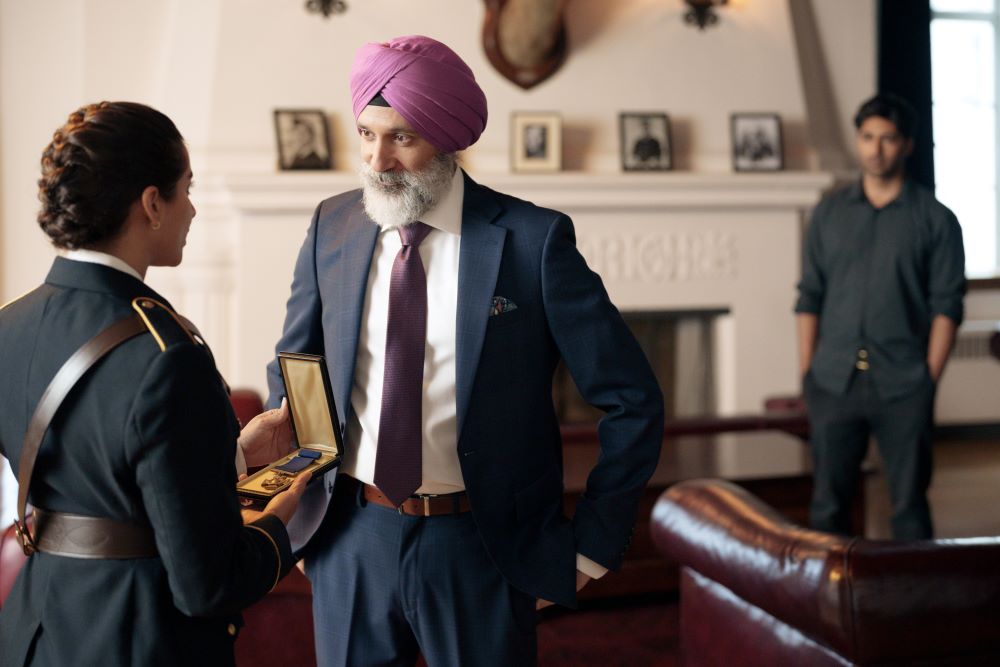
“What is legal isn’t always fair. I was especially inspired by South Africa’s Truth & Reconciliation Commission, Chicago’s Cure Violence, and Toronto’s Social Justice Centre Pilots, all rooted in Restorative Justice. Restorative Justice champions both the victim and the suspect, understanding that we need both perspectives to achieve true justice. Restorative Justice aims for understanding, forgiveness and healing rather than punishment. And in our polarized world, I felt this message is needed, now more than ever.”
As a Rookie cop at the Surrey BC detachment, Sabrina’s arc on the show brings a new perspective to the police drama genre with her growing desire to deliver Restorative Justice in her community. “As Sabrina pulls back the curtain on the biases in law enforcement and the justice system, she starts understanding her own privileges and biases as a middle-class, educated woman,” explains Anar Ali.
Allegiance has a much softer approach to depicting police chasing down “bad guys” to protect the people. Immediately, there is a palpable sensitivity from Sabrina and her trainer, Vince Brambilla (Enrico Colantoni), when interacting with subjects. Perhaps that starts when Sabrina is made vulnerable by the very institution she works for. Regardless, it’s evident that Allegiance stands out from other police dramas on TV.
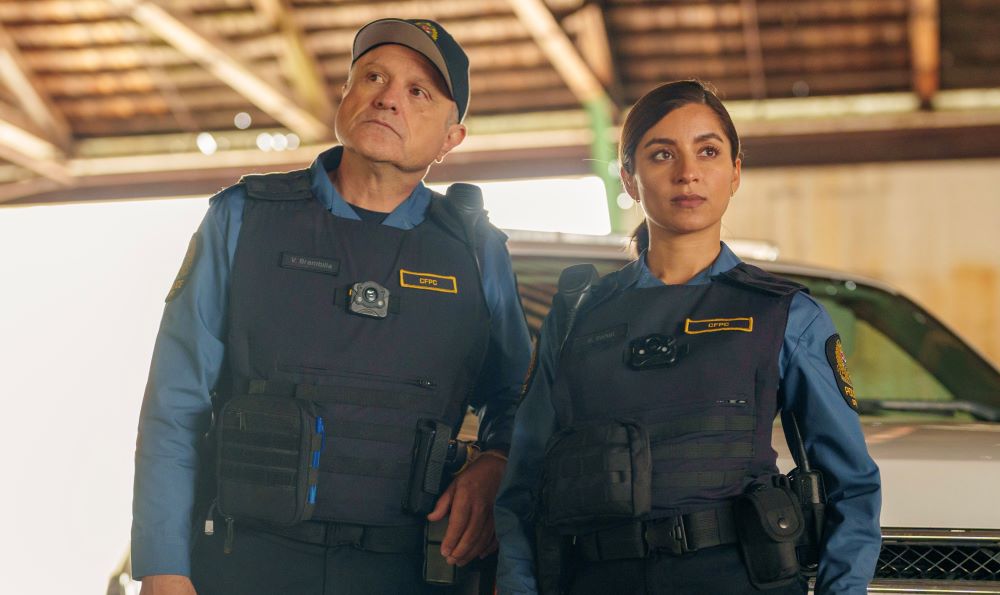
Even Mark Elis, co-creator of Flashpoint, explains the difference between Allegiance and those he’s worked on previously, “this show takes a much more critical look at the broader, systemic injustices within which these officers operate, particularly through a lens of privilege, power and race… In Flashpoint, the notion that our team of cops were basically heroes was not really in question, and most episodes brought a reassuring sense of closure, a sense that our team had managed to ‘keep the peace’… but that was a show for a different time. With Allegiance, many of the episodic stories have closure at one level, but they still leave challenging questions in the air about the very real limits of modern justice.”
Allegiance has plenty of characters to root for and familiar faces. Sabrina is played by Supinder Wraich, whom you may recognize from other hit shows such as Peabody Award-Winning Sort Of (CBC) or the crime drama Private Eyes (Global). Sabrina’s superior officer, Vince, is played by Enrico Colantoni from Mark Elis and Stephanie Morgenstern’s internationally regarded Flashpoint. Sabrina’s father, Ajeet Sohal, is played by sci-fi fan favourite Stephen Lobo from The Flash (The CW), Arrow (The CW), and Snowpiercer (Netflix). Sabrina’s brother, Ishaan Sohal, is played by Adolyn H. Dar, who you may recognize from Private Eyes (Global), Superman & Lois (The CW), and Good Sam (CBS).
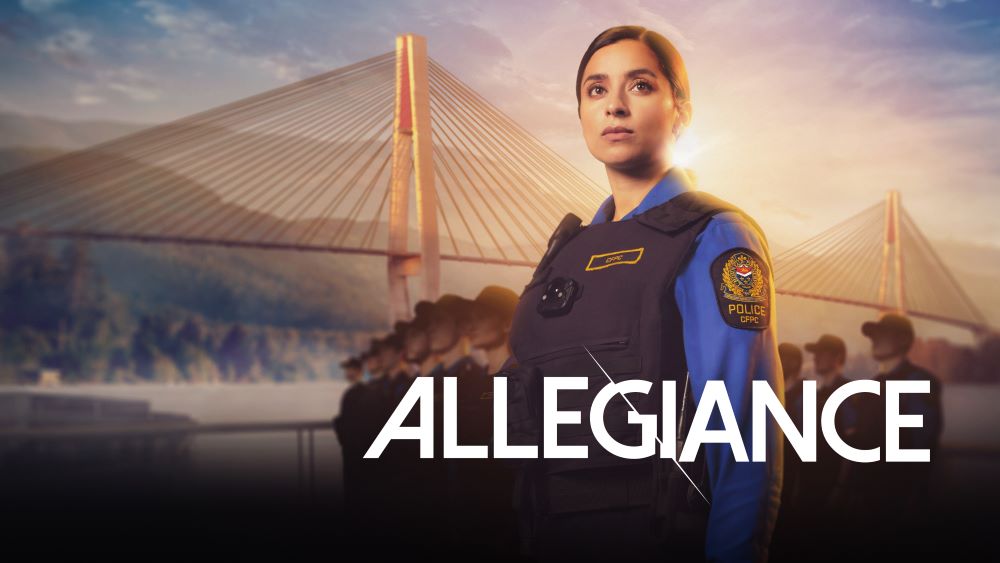
The first two episodes showcase a curiously accurate depiction of siblings Ishaan and Sabrina. They have very different regard for the justice system and ideals. Compared to her rebellious brother, Sabrina appears complacent following the advice “rise above” given to her by her father. I asked creator Anar Ali if she had reservations about the “model citizen” trope. Anar Ali is adamant that Sabrina’s rebelliousness is growing, and we’ll soon see how layered Allegiance’s main character is. The advice to “rise above” from episode 2 has nothing to do with the desire to assimilate with whiteness but comes from an egalitarian viewpoint because “anger isn’t going to get you anywhere.”
I am certainly curious to see where this story goes. Make sure to check out Allegiance every Wednesday by streaming it beginning 9 am ET on the free CBC Gem streaming service or catch it on CBC TV at 9 pm ET.

